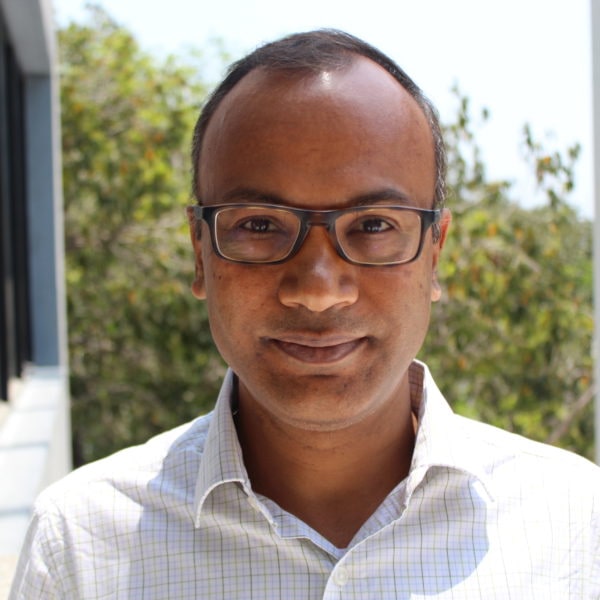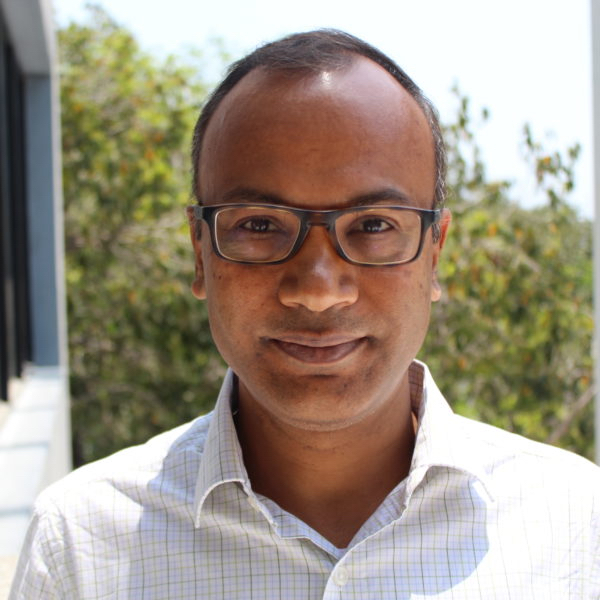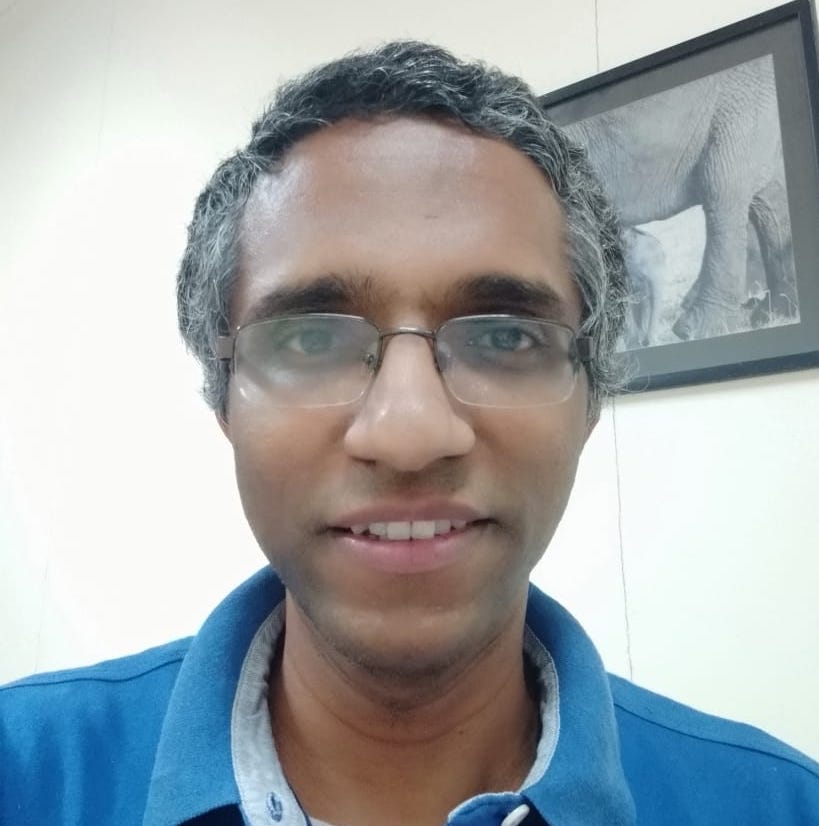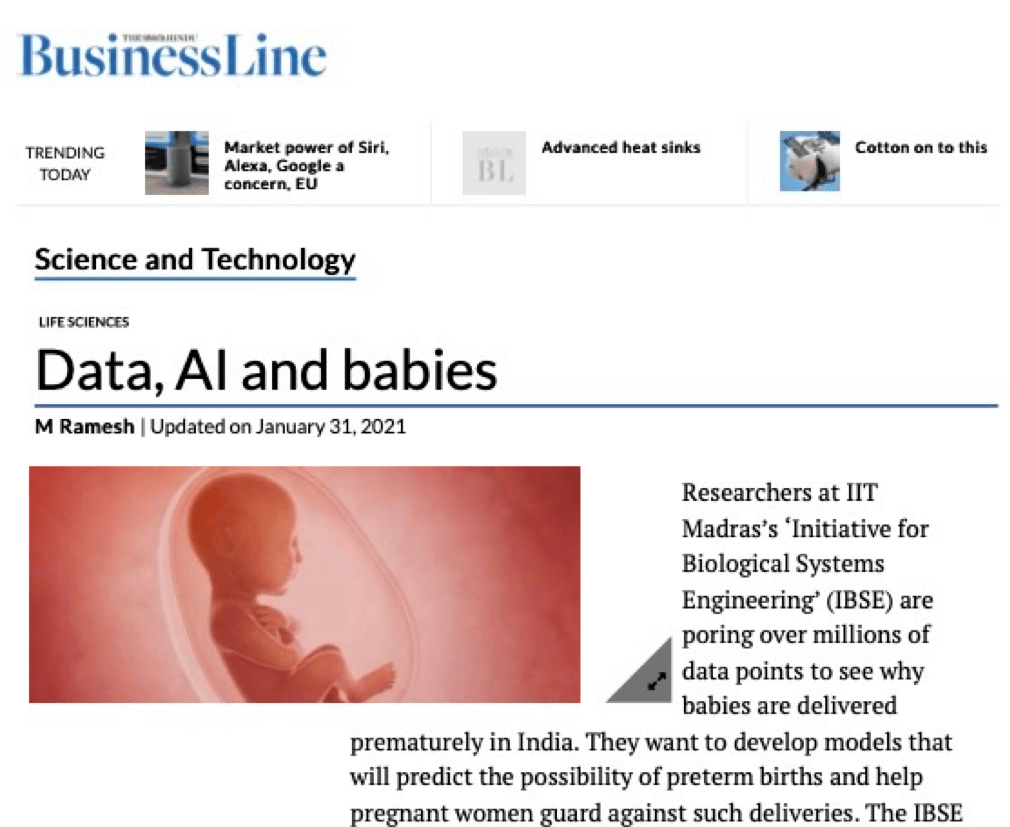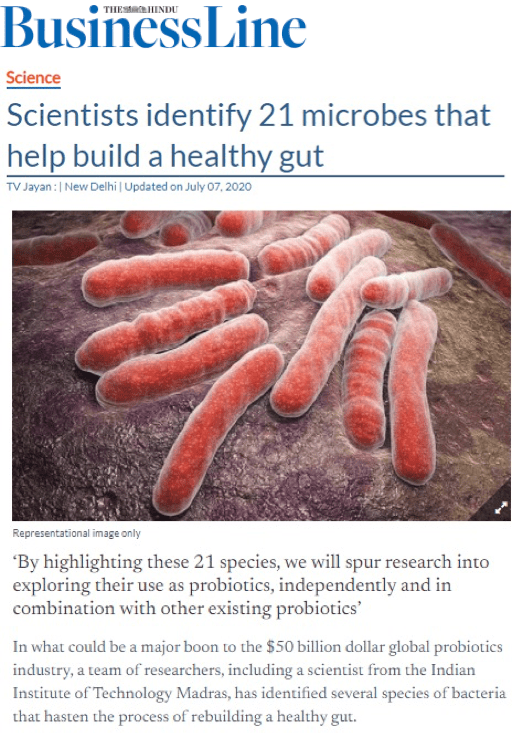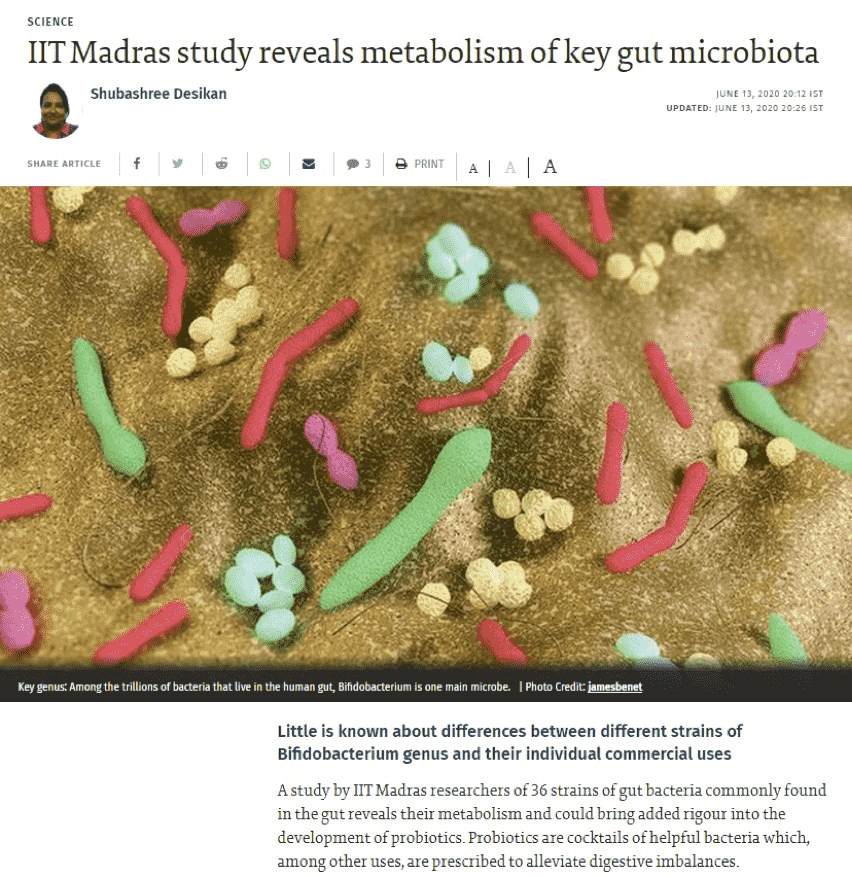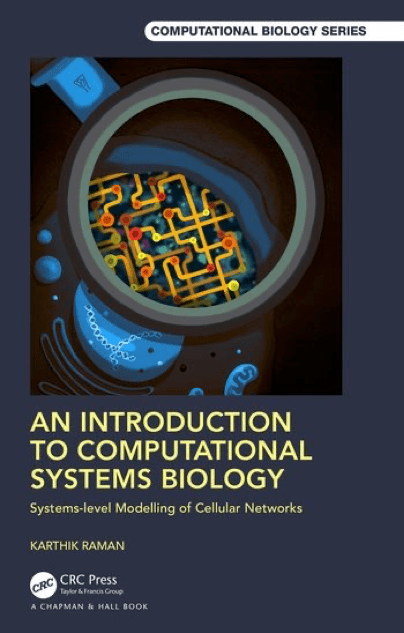Project
The IBSE CoE is a central point of scientific collaboration and key resource-sharing amongst the several individual component projects undertaken by PIs who are part of the Centre. Project-specific objectives of IBSE areas highlighted below.
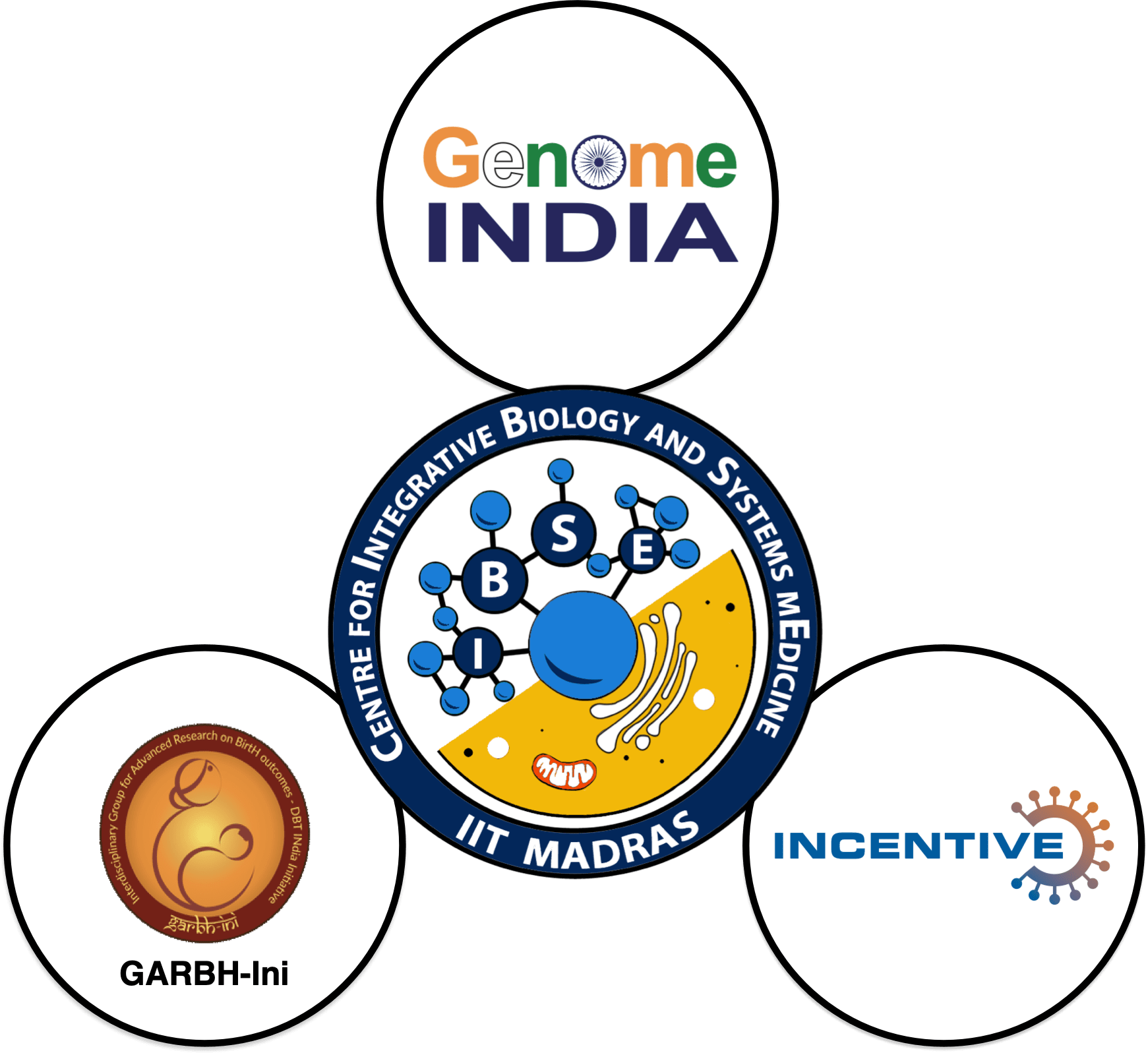
Phase I
GARBH-Ini
Preterm birth prediction modelling
- The first aim of this project is to develop India-specific formulae to determine the foetus’s gestational age in the first and second/third trimesters.
- The project’s second aim is to develop dynamic prediction models that can predict, at different periods of gestation, the preterm birth and other adverse birth outcome risk – to stratify women for timely clinical interventions.
- This project is in collaboration with Translational Health Science and Technology Institute, Faridabad. It is funded by DBT, BIRAC and Bill and Melinda Gates Foundation.

GenomeIndia
Whole-genome sequence of 10K Indians
- Sequencing 10,000 healthy individuals across populations within India will help determine the genetic variations in the population.
- This catalogue of genetic variants in the Indian population will facilitate future large-scale India-specific genome-wide association studies.
- This data will enable the development of novel ML, graph and graph indexing algorithms to build a reference Indian genome sequence/graph that reveals genetic heterogeneity of Indian populations.
- This multi-institutional project is funded by DBT.

MulTiGenomics
Computational multi-tissue genomics methods to elucidate tissue-tissue communication
- The human multi-tissue gene expression and matched genotype data from the NIH GTEx Consortium, along with expression data on multiple brain regions of Huntington’s and Alzheimer’s disease individuals – will be used to infer an integrated gene network model of within-tissue function and tissue-tissue communication. This will help in predicting crucial genes and gene modules that mediate rewiring of tissue-tissue communication in a disease.
- The project is funded by DBT/Wellcome India Alliance.

Expected deliverables of the research
Phase I
For the GARBH-Ini project, India-specific gestational age models and a model for preterm risk stratification in Indian women are the primary deliverables. One of the critical deliverables will be the deployment of these models in clinics dating and preterm risk classification models and hospitals across india
For GenomeIndia, some of the deliverables include a catalogue of unique Indian variants, sub-population specific variants, and India reference genome. The project will increase the genomic representation of Indians in global databases and kick start personalised medicine in india.
For the MulTiGenomics project, the primary outcome will be novel computational methods that analyse multi-tissue genomic data to identify mediators (genes, cell types, hormones) of tissue-tissue communication; and their broad applicability to study healthy and neurodegenerative disease states.
Research outcomes of the above funded projects will be the main deliverables for this CoE. Notably, in Phase I, IBSE will set up the Administrative Core and Bioinformatics Core and initiate the formation of the Technical Advisory Board.
Current status
Centre-specific
Formed a Technical Advisory Board of eminent research scientists from around the world in the fields of strategic importance.
Project-specific
GARBH-Ini – Preterm birth prediction modelling : Garbhini-GA1, a more accurate 1st trimester gestational age dating model specific for the Indian population
MulTiGenomics: Computational multi-tissue genomics methods to elucidate tissue-tissue communication : Predicting cross-tissue hormone-gene relations using balanced word embeddings
Collaborations
International Collaborations
- Ashok Venkitaraman link
- Lars M Blank link
- Victor de Lorenzo link
- Julio Saez-Rodriguez link
- Kasthuri Venkateswaran link
- Rahuman Sheriff link
- Gianni Liti link
Industrial collaborations
Primarily, IBSE is an academic centre with almost all of its research projects having a strong and significant societal impact in improving human health in India. Given the primary focus of IBSE is on healthcare, IBSE is looking to collaborate with hospitals and the healthcare industry to help them develop data analysis pipelines and solutions. Our faculty consults for the industry and advises startups like qBiome, Orbuculum, Vantage Research. In the coming years, we foresee more industry interactions in the public health sector. We plan to facilitate and support industry interaction by connecting with both Pharma and the healthcare industry. With funding opportunities from BIRAC, the Gates Foundation, in-house support systems such as Nirmaan and Harcharansingh Initiative on AI, IBSE will initiate India-relevant data analytics projects and startups. In conjunction with RBCDSAI, IBSE is very well placed to drive ahead exciting projects in this space.
Societal impact
IMPACT
Societal impact
The primary focus of the research projects being carried at IBSE and being proposed in Phase II of the CoE is to fulfil the National Health Mission projects of the Government of India including Atal Jai Anusandhan Biotech Mission- UNaTI The data and the analysis from these research projects will impact various facets of human health in India.
IN THE NEWS
Sustenance statement
The importance to human health and the social relevance of the various projects make it highly likely that this will evolve to be one of the signature areas for IIT Madras over the coming years. Already, IBSE has established itself as one of the go-to centres in India for high-level analysis of omic and clinical datasets. They form a cohesive group capable of taking up many challenging large-scale data analysis and modelling projects. The highly interdisciplinary IBSE faculty have strengthened their internal collaborations through various projects. We will generate alumni and CSR funding for IBSE projects, and we will be shortly submitting such proposals to generate further funding for IBSE. We are confident that funding for future projects and maintaining the proposed core infrastructure will be feasible with increased visibility and impactful research.

